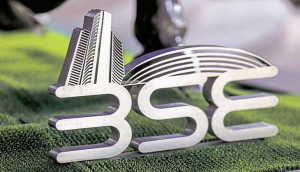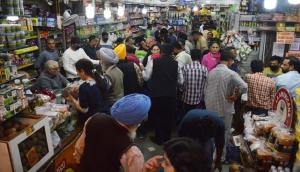
Union Finance Minister Arun Jaitley will chair the 15th meeting of the Goods and Services tax (GST) Council here on Saturday, June 3 to finalise the rates of tax and cess on the commodities remaining after the fitment exercise in the previous Council meet held in Srinagar.
Besides, approval of amendments to the draft GST Rules and related forms are also on the agenda among others of the aforesaid one-day meeting, the meeting is expected to hold discussions on tax rates on gold, textile, footwear, biscuits and beedi.
In the 14th council meeting, Jaitley had said the implementation of the GST will enable a more consumer-friendly taxation system, which will exempt daily-use commodities from the levy.
"Four different rate slab for services are five percent, 12 percent, standard rate of 18 percent and luxury rate of 28 percent, out of which five percent mostly comprises of transport services," said Jaitley while addressing the media at the Council meeting in Srinagar.
With regards to restaurants, those with a turn-over of 50 lakhs or below can go over with a composition of five percent, while service tax on non air-conditioned restaurants will be 12 percent, and that on air-conditioned and liquor license will be 18 percent, Jaitley had said.
Earlier, the GST Council decided to exempt the daily-use commodities from the levy.
Prices of food-grains, especially wheat and rice, will come down as they will be exempted from the GST.
Currently, some states levy Value Added Tax (VAT) on them.
Daily-use items like sugar, tea, coffee (barring instant coffee), edible oil and life-saving drugs will attract the lowest tax rate of five percent, almost the same as current incidence.
Milk and curd will continue to be exempted from taxation when the GST replaces current indirect taxes.
'Mithai' or sweets will attract five percent levy.
The common use products like hair oil, soaps and toothpaste will be charged with a single national sales tax or GST of 18 percent instead of present 22-24 percent tax incidence through a combination of central and state government levies.
The Council fitted all but six items in 5, 12, 18 or 28 percent tax brackets.
Seven percent of the items fall under the exemption list while 14 percent have been put in the lowest tax bracket of 5 percent.
17 percent items are in 12 percent tax bracket, 43 percent in 18 percent tax slab and only 19 percent of goods fall in the top tax bracket of 28 percent.
Cars, ACs, refrigerators and aerated drinks will be in 28 percent bracket.
On top of the peak rate, small cars will attract a 1 per cent cess, mid-sized cars will attract three percent and luxury cars 15 percent.
The 'all-inclusive' GST bill has been passed in several State Assemblies, including those of Maharashtra, Odisha, Himachal Pradesh, Tripura, Goa, Madhya Pradesh and Uttar Pradesh, to name a few.
Hailed as a 'revolutionary' tax regime, the GST is said to be India's biggest tax overhaul since independence in 1947. It will replace a slew of federal and state levies, transforming Asia's third largest economy into a single market.
The GST is scheduled to be rolled out on July 1.
-ANI







![BJP's Kapil Mishra recreates Shankar Mahadevan’s ‘Breathless’ song to highlight Delhi pollution [WATCH] BJP's Kapil Mishra recreates Shankar Mahadevan’s ‘Breathless’ song to highlight Delhi pollution [WATCH]](https://images.catchnews.com/upload/2022/11/03/kapil-mishra_240884_300x172.png)

![Anupam Kher shares pictures of his toned body on 67th birthday [MUST SEE] Anupam Kher shares pictures of his toned body on 67th birthday [MUST SEE]](https://images.catchnews.com/upload/2022/03/07/Anupam_kher_231145_300x172.jpg)






